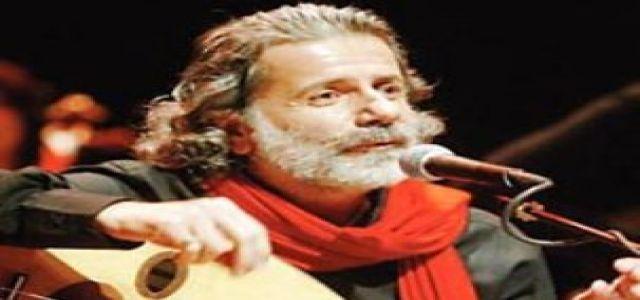- Arts
- April 18, 2008
- 4 minutes read
Love and resistance

By his own admission in Cairo on Tuesday night, composer, oud player and singer Marcel Khalifa”s timing is perfect. His concert, after all, was being performed as Egypt witnessed multi-faceted acts of protest and against the backdrop of mass detentions of Muslim Brotherhood members as well as of supporters of the planned general strike of 6 April.
Beyond Egypt”s borders, with nearly a quarter of the population displaced, the people of Iraq continue their five- year-old resistance to the US-led occupation of their country while the Palestinian residents of Gaza, against all odds, remain resilient against the impermeable Israeli siege in force since June 2007.
Khalifa is fully aware of the way his music feeds into core Arab causes. At his press conference in Cairo he spoke out on both Mahala and Gaza and during the performance itself told his eager audience that, “it seems appropriate we should be meeting on 15 April,” a month before the 60th commemoration of the Nakba.
Among the various political currents Khalifa unites with his warmth and commitment to the Arab cause is that of the left. Hussein Abdel-Razeq, founding editor-in-chief of Tagammu”s mouthpiece Al-Ahali, is in no doubt as to the symbolism of Khalifa performing in Cairo on the 30th anniversary of the paper”s launch. “As the first Egyptian leftist newspaper associated with a registered political party we felt it important to mark the launch,” Abdel-Razeq said. “We are especially keen to celebrate since we have seen a surge in left-leaning media over recent years.”
Other prominent — and more radical — activists also described with emotion their dedication to the spirit of Khalifa”s music. “What Marcel”s music does for us all is to allow us to continue struggling,” veteran leftist activist and director of the Hisham Mubarak Law Centre in Cairo Ahmed Seif El-Islam told Al-Ahram Weekly. The centre is perhaps best known for its active support of torture victims and Egyptians subject to arbitrary detention.
“You know he saved my life,” said Seif El-Islam, who went on to describe how, on a journey by car from Beirut to Damascus in his youth, he asked the driver to stop when he heard Ummi (My Mother) for the first time being played from a roadside kiosk. “I was mesmerised and went to ask the shop owner for a copy of the tape. When I turned back the car had been destroyed in a horrific crash.”
The secret of Khalifa”s music appears to be that it reflects the secrets of the Arab world itself. It accommodates variety and individual identities and does so in a way that refuses to be tied down by ideology. The composer”s music reaches beyond politics, and Khalifa has always refused to sacrifice his dignity as an Arab, one reason he commands so much respect from old and young alike. “Apart from the sheer beauty of his music, we are also united by a common purpose,” says Abdel-Razeq.
The performance itself was as his recordings promised and more. Bordering on a spiritual journey, the concert trod a path between the passion of struggle, the pain of loss and the sensuousness of new love. Joined by his sons Rami Khalifa on piano and Bashar Khalifa on percussion, as well as by Peter Herbert on double bass, he invited Egyptian cellist Hassan Moataz for a contained version of Ya Bahriyye as the finale of the evening.
The settings of love poetry by Palestine”s Mahmoud Darwish were transporting — and political. Emphasising the importance of honouring love, Khalifa addressed the audience playfully while expressing his disillusion with the current state of music in the Arab world. “You wonder why I sing about love?” he asked. “It”s the most beautiful thing in the world. Or maybe you”ve forgotten? We will remind you.”



